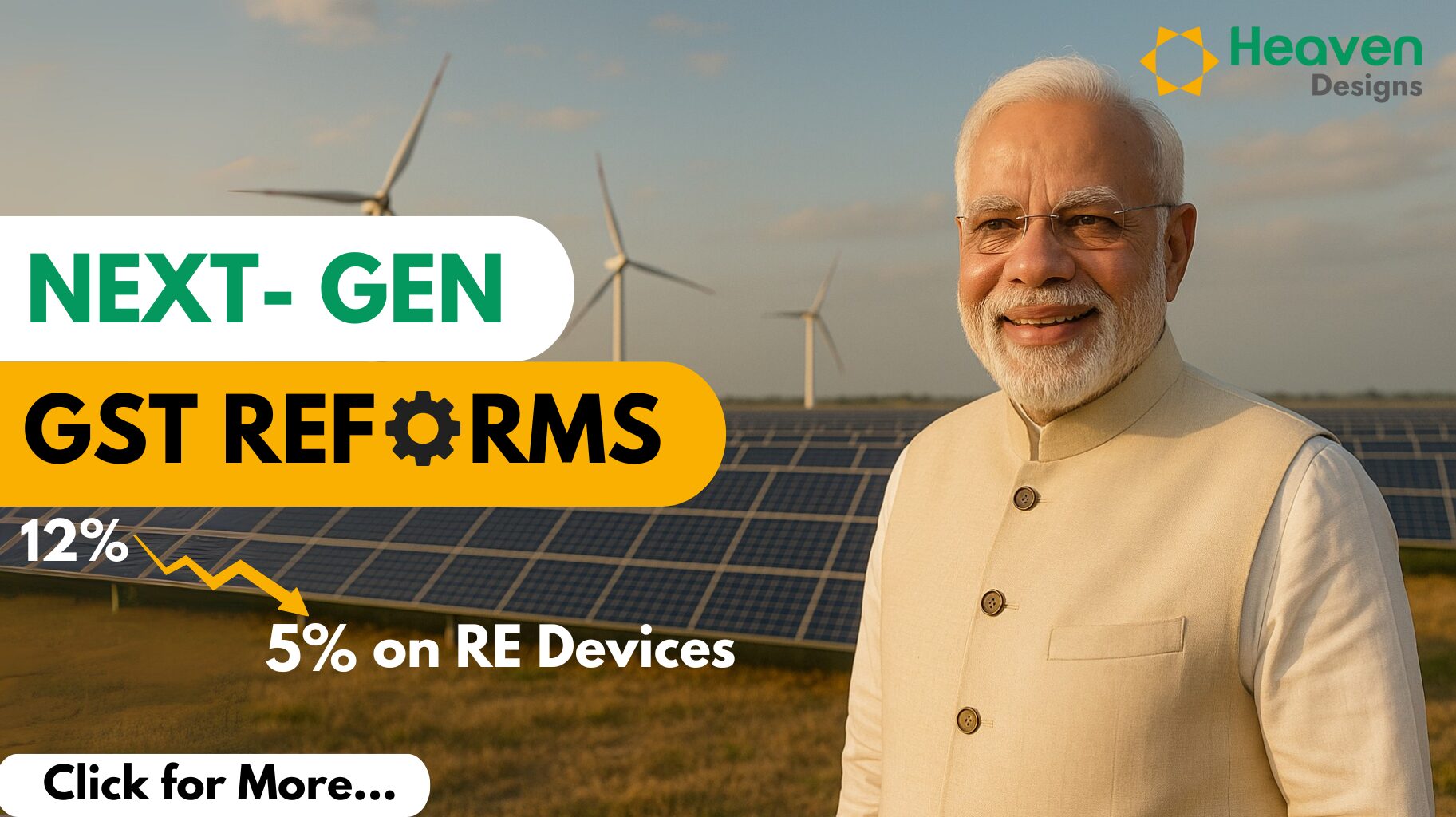The GST Council has announced a major reform that could transform the renewable energy landscape in India. Effective September 22, the tax rate on renewable energy devices and manufacturing parts has been reduced from 12% to 5%.
This reform makes solar, wind, and other clean energy solutions more affordable and strengthens India’s path toward sustainable growth.
Key Highlights of the GST Cut
- Renewable energy devices and parts will now attract only 5% GST (down from 12%).
- The tax cut covers a wide range of equipment, including:
- Solar cookers and water heating systems
- Biogas plants
- Windmills and wind-operated electricity generators
- Waste-to-energy plants
- Photovoltaic (PV) cell
Additional Tax Reductions
- Non-lithium-ion batteries: now taxed at 18%, down from 28%.
- Fuel-cell vehicles: now taxed at 5%, down from 12%.
Who Benefits?
This move is expected to benefit renewable energy companies and manufacturers by lowering equipment costs and encouraging investment. Likely beneficiaries include:
- Adani Green Energy
- Tata Power
- NTPC Ltd
- Waaree Energies
- KPI Green Energy
- Sterling & Wilson Renewable Energy
- Reliance Industries
- ReNew
Impact on the Sector
- Lower Equipment Costs – Solar panels, wind turbines, and other devices will now be more affordable.
- Higher Investment – With reduced costs, investors are likely to fund more clean energy projects.
- Faster Adoption – Lower prices mean quicker adoption of solar and wind solutions across households and businesses.
- Boost to Domestic Manufacturing – A reduced tax burden will make Indian manufacturers more competitive, supporting the Make in India vision.
A Step Toward India’s Clean Energy Goals
Finance Minister Nirmala Sitharaman announced the decision after the 56th GST Council meeting in New Delhi. This move signals the government’s strong commitment to clean energy, aligning with India’s ambitious targets of scaling renewable energy capacity and cutting fossil fuel dependence.
The real test will be how quickly the sector adapts to the new rates and how effectively this translates into growth. But one thing is clear — GST 2.0 gives solar and renewables the momentum they need to shine brighter than ever before.


